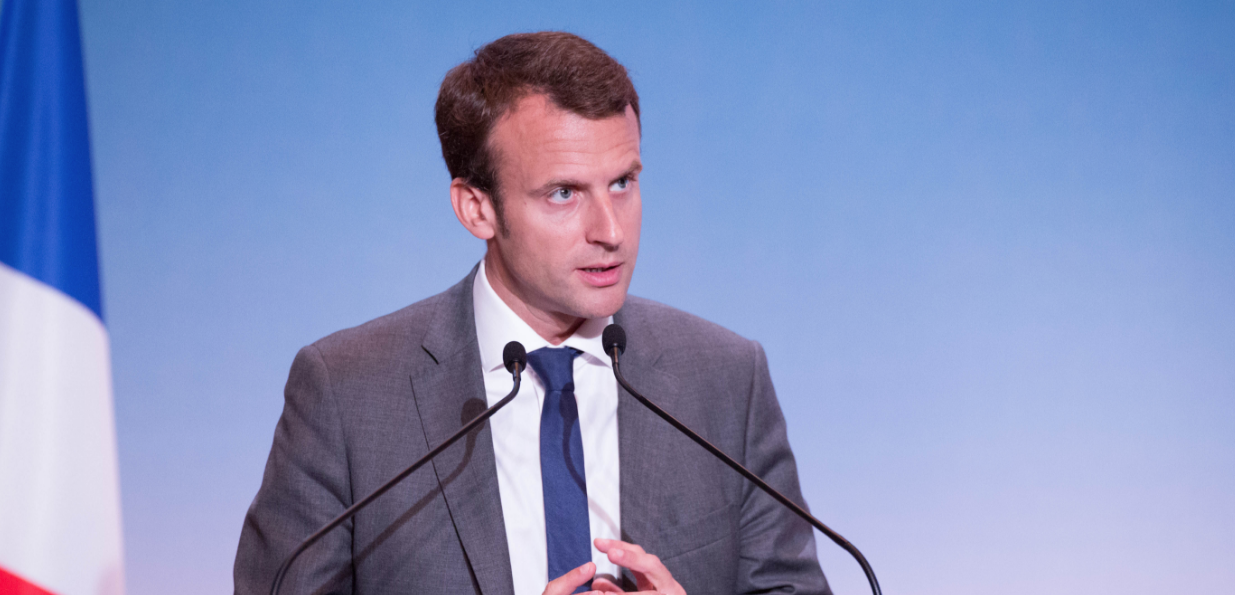Sign up for The Media Today, CJR’s daily newsletter.
To all appearances, US President Donald Trump and French President Emmanuel Macron hold almost diametrically opposed worldviews and political sensibilities. Observers in both countries were thus surprised when the globally minded 39-year-old policy whiz chose the bitter and boorish 70-year-old nativist as his guest of honor for Friday’s Bastille Day celebrations and military parade along the Champs-Élysées.
But these two new presidents, both of whom came into office with no prior political experience, share something more than just a taste for patriotic pomp. Trump and Macron seem to understand our internet-driven culture and information system—with its unending appetite, virality, and unfiltered access to the masses—better than their respective domestic rivals and other world leaders. Trump is a known Twitter troll, but Macron has his own knack for the practice, even trolling Trump after the US pulled out of the Paris Climate Accord with a social media video message that ends with, “Make The Planet Great Again.”
Macron would never incite violence against reporters or shout “fake news” at articles he doesn’t like. He says all the right words about la liberté d’expression, and he seems to mean them. Still, the French president is actively keeping his distance from the press in ways his immediate predecessors haven’t.
ICYMI: Journalist behind depressing, viral Trump Jr. tweet speaks
Unlike former French President François Hollande, who was notably too friendly with reporters for his own good, Macron has implemented new rules limiting access to journalists at the Elysée presidential palace and choosing who would follow him on foreign trips. He also bowed out of what has been a decades-long tradition of granting a television interview on July 14 to respond to questions about the state of France. A presidential aide was quoted as saying that Macron’s “complex way of thinking” was not well-suited for interviews with journalists.
Another, more subtle change from Macron was reported last week ahead of his party’s first-ever convention. The party, recently re-baptized La Republique En Marche, has a whole new approach to politics. “We’re establishing ourselves like a media,” said one party official. The plans include the “production of its own content,” Le Monde reports, with a new team of video producers, aimed at both party loyalists and the general public. “We want to break the uniquely political vision of the party,” the official said. “It’s up to us to choose the themes.” In France, it seems, branded content has officially entered the halls of power.
Marketing isn’t, per se, a problem, even for politicians. What are election campaigns and candidate sloganeering, after all? But a functioning democracy needs limits—and substance.
Elected officials have an obligation to serve the people first, and despite the power of social media to give everyone a voice, that still includes a willingness to respond to the press.
The tricks of the trade may be changing, but the rules of the game are the same. Trump has shown a readiness to toss it all away. Macron would never be so gauche. The risk he poses is more subtle: not lies or bullying—just elegantly changing the subject.
ICYMI: “Americans are learning from Trump that much of their democracy was run on the honor system”
Has America ever needed a media defender more than now? Help us by joining CJR today.



